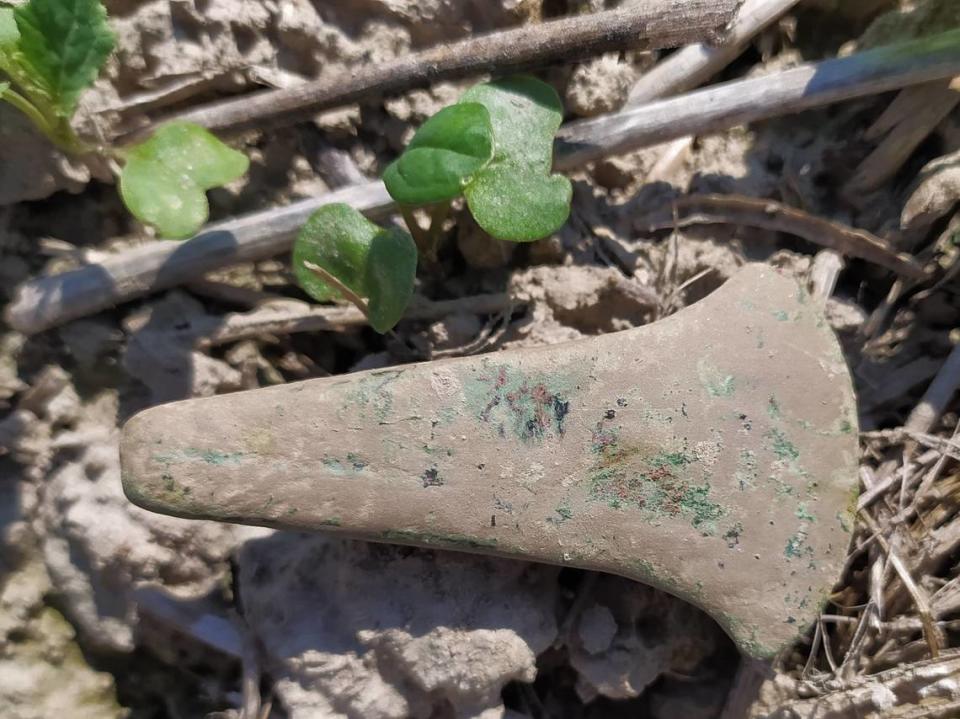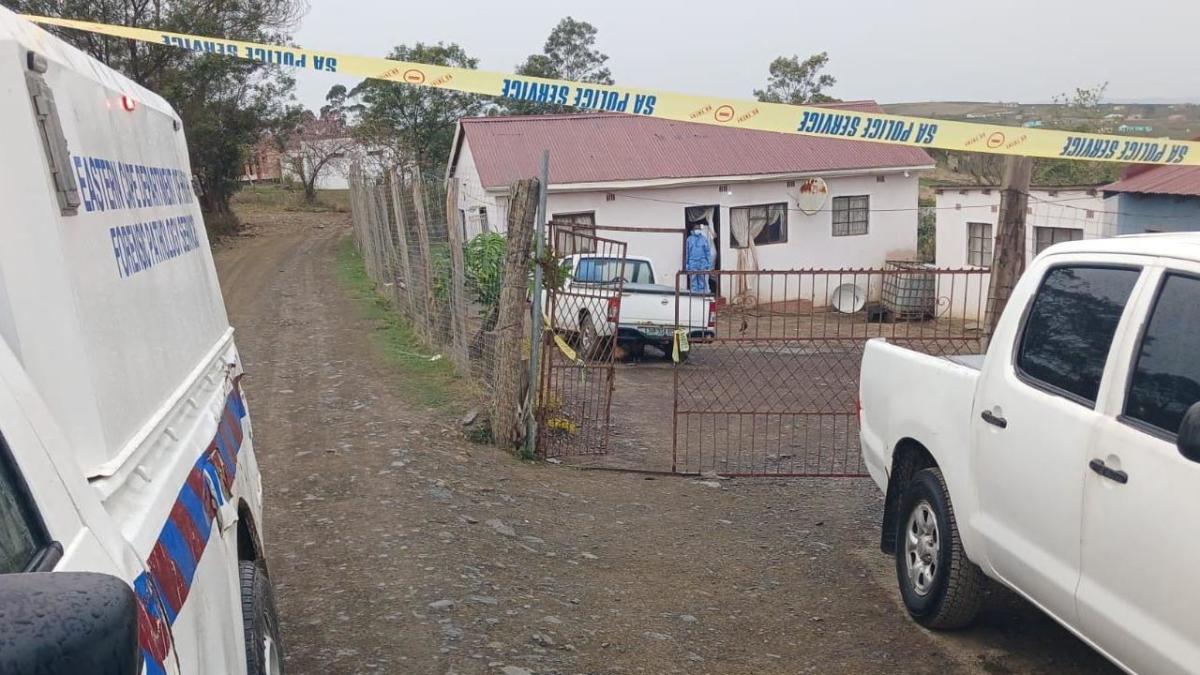In a village of eastern Poland, Paweł Małkowicz organized a metal-detecting rally. Before the event, Małkowicz did a preliminary search and left some extra metal items for participants to discover.
But one participant found something unexpected — and surprisingly ancient.
Krzysztof Gajos attended the metal-detecting rally in Matcze last August, the Lublin Provincial Conservator of Monuments said in a March 28 Facebook post. During the event, the metal detectorist stumbled on a dusty tool.
Archaeologists identified the tool as a 5,000-year-old copper ax head from the Trypillya culture.
A photo shows the fan-shaped ancient artifact. It measures about 3 inches in length and has a stone brown coloring with some greenish spots, officials said.

Uncover more archaeological finds
What are we learning about the past? Here are three of our most eye-catching archaeology stories from the past week.
→ Roman helmet looked like a ‘rusty bucket’ when it was found in UK. Now, it’s restored
→Elaborate 600-year-old castle — complete with moat — unearthed in France. Take a look
→ Mysterious wooden train car — almost 100 years old — unearthed in Belgium, photos show
Archaeologists said the ancient ax head was a surprising discovery because of its age and location.
The copper ax dates between 4000 B.C. and 3000 B.C., possibly making it the oldest copper product ever found in Poland, the conservator said.

Additionally, the ax head was linked to the Trypillya culture, a Neolithic culture that thrived in modern-day Ukraine between 5000 B.C. and 4000 B.C., according to Britannica. Ruins from Trypillya settlements have been found primarily in Ukraine, Romania and Moldova.
Only a few artifacts linked to the Trypillya culture have been found near Matcze where Gajos discovered the copper ax head, archaeologists said. Matcze is a village about 180 miles southeast of Warsaw and along the Poland-Ukraine border.
The ancient ax was given to officials and sent to a museum for further study.
Google Translate was used to translate the Facebook post from the Lublin Provincial Conservator of Monuments.
Medieval ship sank 500 years ago off Portugal coast. Now valuable cargo is revealed
Mysterious ‘curse tablets’ and ‘sophisticated’ paintings found at ancient Roman site
Elaborate 600-year-old castle — complete with moat — unearthed in France. Take a look
#Metal #detectorist #stumbles #worn #tool #finds #5000yearold #artifact





